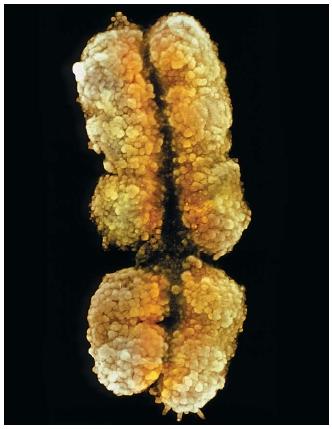
I'm always on the lookout for gendered language (maybe you've noticed) and something in today's list of most emailed new york times articles rang the gender bell. The language about the X chromosome's fantastically complicated ability to silence one of its copies (or activate a single copy in some species) is turned into mommy talk. Here's an excerpt from the beginning of the article, listing the requirements for being an X chromosome with mother's day triteness:
"Must be exceptionally stable yet ridiculously responsive to the needs of those around you; must be willing to trail after your loved ones, cleaning up their messes and compensating for their deficiencies and selfishness; must work twice as hard as everybody else; must accept blame for a long list of the world’s illnesses; must have a knack for shaping young minds while in no way neglecting the less glamorous tissues below; must have a high tolerance for babble and repetition; and must agree, when asked, to shut up, fade into the background and pretend you don’t exist."
How would this discussion be different if the manlier chromosomes were involved in chromosomal inactivation? I think it's dangerous to gender chromosomes in this way just because this is something that happens only in human females (the same kind of thing happens in reproductive biology. Are women, and specifically mothers, something that should "fade into the background", defined by their chromosomal situation? I think you know what my answer is.
1 comment:
Here's a link to another article in the NYT, with a more blatant sexist remark. In commenting on the discovery by a Dr. Bennett (a female scientist) of a complex genital anatomy in ducks, a Dr. McCracken (a male scientist) was quoted as being "struck by the fact that it was a woman who discovered the complexity of female birds." What does that even mean?
I agree that it's dangerous and ignorant to even hint at a potential association of genetic make-up and gender role in society. This reporter was attempting to be cute and appeal to 'suffering, under-appreciated mothers' (which she very well may have done), but in doing so she did not consider the disservice she was doing to herself, other women, and the propagation of such stereotypes. Boo, Natalie Angier. Boo.
Post a Comment